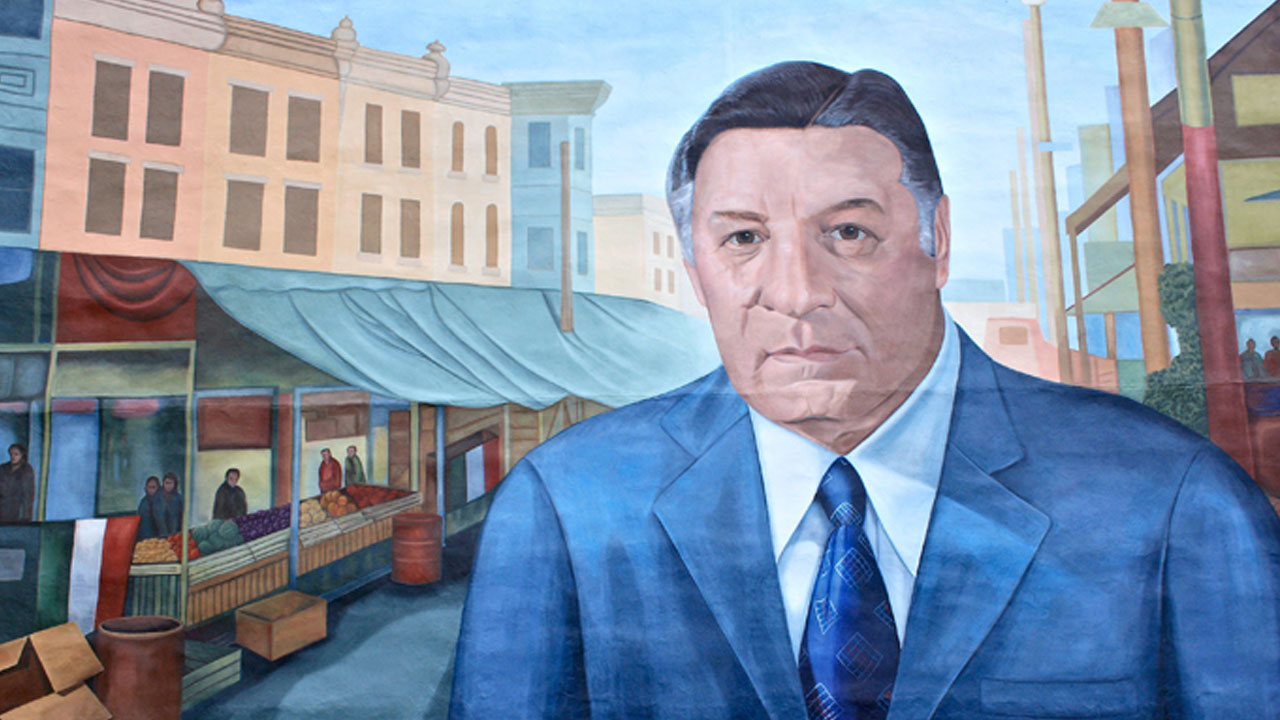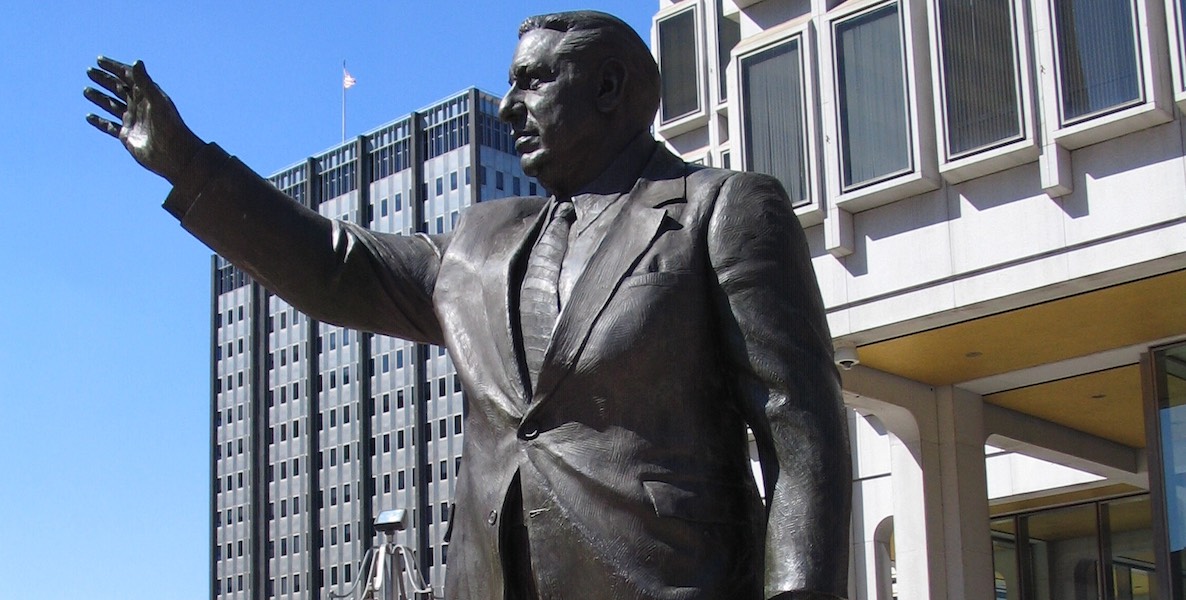Let’s get this straight from the outset: Though I’m among those who have said it ad nauseum, the truth is, we don’t need to have a conversation about race. We have them all the time—witness the kerfuffle over the Frank Rizzo statue or Starbucks’ ill-advised program last year to have your barista announce his or her position on affirmative action to you while mixing your grande mocha latte. They’re not really conversations, of course, so much as a bunch of people listening to themselves talk while talking past others. What passes for our race dialogue focuses more on symbols than real substance and sheds considerably more heat than light, so I’m issuing forthwith a moratorium on calls for more of the same.
No, what we need, in this city and in this country, is more smart discussions about race relations. You know, the kind of byplay that features not only facts, figures and conclusions drawn from verifiable evidence, but also listening and introspection and well-meaning intentions to feel one another’s pain. What we need, what I’ve just described, is a Truth and Reconciliation Commission. If you weren’t around in the mid-‘90s, South Africa, after decades of a brutal, racist system, undertook reform, and part of that effort included coming to terms with its own past. It was truly stunning, because it featured a long-oppressed black majority coming to power and, together with the ruling class that had tortured and held it down so long, taking the moral high ground.
Instead, what we have here, in both our city and our country, is tired name calling and dog whistle sloganeering; it is only the appearance of conversation. Let’s take the Rizzo case. What would a real conversation look like?
First, some background: The Philly Coalition for REAL Justice started a petition to remove the nine foot bronze statue of the legendary two-term Mayor that sits in front of the Municipal Services Building, calling Rizzo an “unrepentant racist who stopped at nothing to torture and hold Philadelphia’s African-American community as his personal hostages.” To date, 1,268 Philadelphians have signed the petition, and 3,622 have since signed a counter-petition to leave the statue where it is.
Passions are running high. When a group supporting the statue held a rally, activists in opposition showed up and things got heated.
When, before a sparse crowd of mostly media, some Black Lives Matter activists placed a KKK hood on the Rizzo statue, Billy Penn reported on a disturbing exchange, in which BLM activist Asa Khalif upbraided an African-American police officer: “Where the hell were you at when he was terrorizing your community?…You’re disrespecting your community. You disrespect yourself. Tear this motherfucker down!.”
In stark contrast to such vitriol, there was Michael Smerconish’s affectionate tribute to Rizzo in Sunday’s Inquirer. Smerconish, Rizzo’s long ago aide, paints the larger-than-life Mayor as someone who cared deeply about public service and his city. But he glosses over the race-based critique that so animates the other side with one sentence: ”Rather than argue new facts, the petition that promotes the removal of the Rizzo statue offers a diatribe of specious generalizations about a man not here to defend himself.”
If ever we needed a case study of how we talk past one another, this is it. Any enlightened conversation about the legacy of Frank Rizzo should begin with Black Lives Matter activist Khalif conceding that an African-American cop in Philly in 2016 is serving his community, and with former Rizzo aide Smerconish admitting that his boss was a racially polarizing figure. And both should agree on a baseline set of facts before letting hyperbole get in the way.
Frank Rizzo was a complicated character. He ginned up white ethnic fear in the ’70s for his political advantage, and he was also a compelling, big-hearted man beloved by many Philadelphians. Ralph Cipriano and Tom Infield captured the dichotomy that was Rizzo brilliantly in their 1991 obituary in the Inquirer.
As they amply document, there was a lot to be concerned about when it came to the reign of Rizzo. As police commissioner, Rizzo’s cops violently broke up a student demonstration for a black studies program—and Rizzo was quoted as saying, “Get their black asses.” (He denied making the comment.) Investigating a cop shooting, he strip-searched members of the Black Panther Party, parading them naked before media onlookers…before dropping the charges and finding the real perpetrators elsewhere.
As Mayor, Rizzo had iron-clad control of the police force and it garnered a national reputation for brutality. The United States Justice Department sued Rizzo for a pattern of unlawful police conduct that included “physical abuse, unlawful use of deadly force and disciplinary procedures which condoned abuse.”
In her 2005 memoir, NBC News’ Andrea Mitchell, who got her start in Philly, perfectly illustrates the us versus them mindset Rizzo wielded—one that made him a folk hero to working class white ethnics in the dawning of the age of affirmative action. She recounts that the Inquirer had reported that Rizzo’s police force had shot an unarmed teenager in the back in West Philly and the community was outraged: “I called the Mayor to see if he would agree to investigate the police,” she writes. “No, he said. ‘My men are right when they’re right, and they’re right when they’re wrong and they’re trying to be right.’”
Any enlightened conversation about the legacy of Frank Rizzo should begin with Black Lives Matter activist Khalif conceding that an African-American cop in Philly in 2016 is serving his community, and with former Rizzo aide Smerconish admitting that his boss was a racially polarizing figure.
Also as Mayor, Rizzo made an ends-justify-the-means argument that he made Philadelphia safer for all law-abiding citizens of the city, black and white. Indeed, it was safer than comparable cities, though there were allegations that the crime statistic numbers Rizzo furnished to the FBI were misleading, at best.
One would hope that there’s something else the Black Lives Matter activists and the Rizzo ally can agree upon: We spend entirely too much time arguing over symbols instead of debating ideas that can help actual individuals.
“The one civil rights cause I was most involved in was the push to make Martin Luther King, Jr’s birthday a national holiday,” says Wharton’s Ken Shropshire. “I don’t regret it. But, now, decades later, I wonder, after all those marches, that was it? We got a holiday. But what effect did we have?”
Regarding King, as I’ve written before, we got a substantive day of service, but also a mainstream whitewashing of King’s real legacy—the dude was much more of a badass than pop culture now renders him. Similarly, for all this finger pointing over the Rizzo statue, did the cause of social justice advance for even one real person?
Smerconish is a smart guy, and he’s right when he says the Black Lives Matter instinct in this case is part of a trend. It seems like, rather than debate and learn from our history, the tendency is to want to erase it. At Harvard, there were calls to remove the school’s seal because it was tied to a slaveholding family that endowed the college. And at Princeton, the Board decided last spring not to acquiesce to student demands that, owing to his segregationist past, Woodrow Wilson’s name be removed from its School of Public and International Affairs. Wilson was a past president of Princeton, President of the United States, and had won the Nobel Prize for his work developing the League of Nations—but he also had a decidedly racist past. The administration, while rebuffing the demand to whitewash history, turned the showdown into a teachable moment, creating an exhibition—In the Nation’s Service? Woodrow Wilson Revisited—that tries to get at Wilson’s complicated legacy.
“One of the things we heard from protesting students was that it is not just a problem that Wilson was flawed, but it is a problem that he is so venerated across this campus,” a school official told NPR. “So the exhibit tries to get at the heart of the protest about how Wilson is honored at Princeton.”
That seems to be a pretty healthy way to engage these matters, no? Some have gone even further. At Georgetown University, more than just lip service has been paid to the institution’s racial past. Nearly 180 years ago, the Jesuits running the school needed to pay off a substantial debt to stave off bankruptcy, so they sold 272 slaves—saving the university. Georgetown President John DeGioia has taken what could turn out to be groundbreaking action. He has met with some of the descendants of the very slaves his institution once sold, and he’s engaged his school community in an ongoing, still-evolving real conversation about what they collectively owe these families whose lives were likely impacted by Georgetown’s actions generations ago.
That, it seems to me, is an open-minded way to handle the vexing issue of race. DeGioia has lowered the volume and opted for a Truth and Reconciliation Commission-type approach. Wouldn’t that type of approach be interesting here? I’m not smart enough to know what a real discussion about Philly race relations ought to look like, but I’m interested if anyone has any ideas. But I know this: Black protestors placing KKK hoods on a twenty-year old statue while yelling profanities at a black cop and op-eds with charming personal anecdotes about one of our most racially divisive figures aren’t ultimately constructive, and actually keep polarized sides glued to their respective corners.
Header photo by Flickr/ann gav








